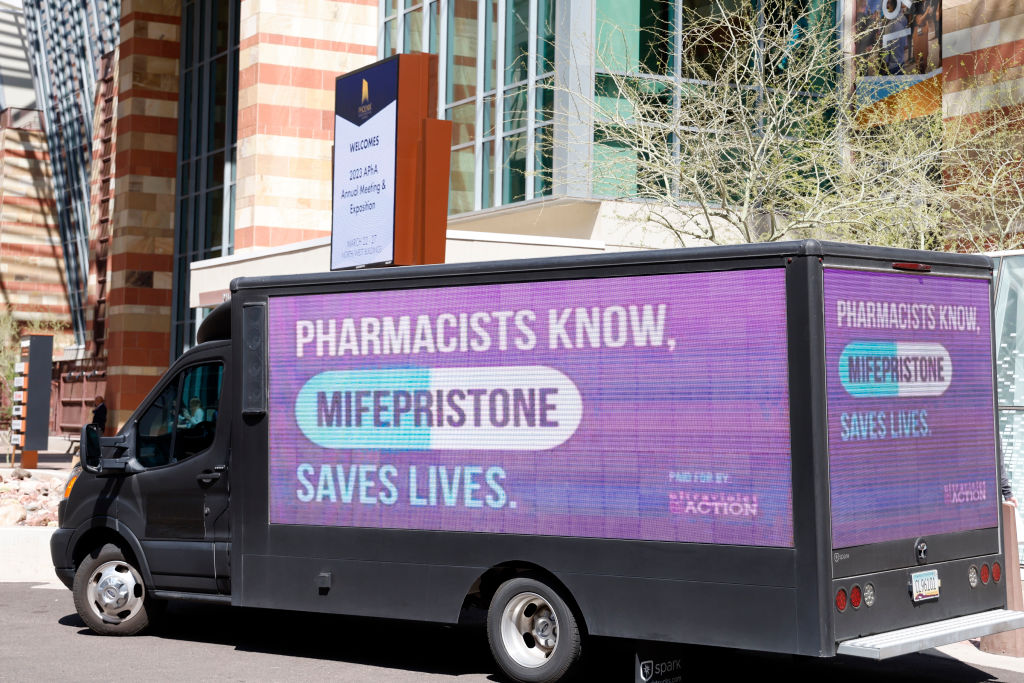According to a recent study published in the Journal of the American Medical Association, support for increased access to abortion pills has grown dramatically since the U.S. Supreme Court’s 2022 ruling to allow states to regulate access to abortion, including among people who reside in states that have abortion bans.
Prior to the Dobbs ruling, surveys were completed by over 7,000 women countrywide between the ages of 15 and 49 in December 2021. Half of the same demographic was randomly selected to participate in a follow-up study in June 2023.
Idaho’s governor believes that while lawmakers await court decisions, changes to the state’s abortion restrictions are unlikely.
Support for two types of expanded access to medication abortion was measured by the surveys: over-the-counter availability at a nearby drugstore or other retailer without a prescription, and advance provision, which involves obtaining medicine prior to pregnancy and reserving it for future use if needed.
The percentage of respondents who supported both models fell from roughly 35% to 32% in 2023, while those who opposed them rose from roughly 49% in 2021 to 55% in 2023.
According to the study’s authors, these models would nevertheless increase access to abortion for residents of states that forbid the procedure, even though it is improbable that they would offer medication abortion beforehand or sell it over-the-counter at retail pharmacies if the FDA approved it. These alternatives would provide more options where people could travel or receive the medications from friends or family members who live in states with protected access to abortion, such as by extending access to abortion to physical pharmacies, online pharmacies, and telehealth in states with such access.
The study also discovered that the women’s obstacles to accessing reproductive health care, such as finding a clinic, had somewhat increased.
Republicans currently control Congress, and the study was conducted by Antonia Biggs, acting director of Advancing New Standards in Reproductive Health at the University of California, San Francisco, only days before President Donald Trump took the oath of office for his second term. There are ongoing lawsuits that could significantly limit access to abortion drugs across the country. Additionally, mail delivery, which is a major point of access for persons in at least a dozen states with nearly complete abortion prohibitions, may be subject to limitations. Because of Trump’s anti-pharmaceutical and anti-vaccine stance, anti-abortion organizations have pledged to continue their efforts to revoke the U.S. Food and Drug Administration’s approval of the medication mifepristone and have stated their willingness to back Robert F. Kennedy Jr., Trump’s choice to head U.S. Health and Human Services.
States that allow abortion on a broad basis are also attempting to increase access. Among the tactics are a trial program in Washington state that permits pharmacists to prescribe the drug through telemedicine and shield laws that prohibit states with prohibitions from trying to access medical records or look into cases where their citizens seek abortions in jurisdictions that have legalized the procedure.
Even in states where abortion is illegal, people can frequently obtain abortion pills online before a positive pregnancy test, or in other states where it is permitted, they can get it through telehealth. At this time, misoprostol and mifepristone are not available over-the-counter.
The percentage of survey respondents who had previously had a pharmaceutical or procedure abortion was around 10%. None of the other respondents had ever had an abortion or given birth. Approximately 42% resided in a state where there were limitations or a complete ban between six and eighteen weeks of pregnancy.
A new pilot program allows Washington pharmacists to administer abortion drugs.
After each model was explained, the women were asked if they had any particular interest in it. About 26% of respondents said they were definitely or probably interested in taking abortion pills before becoming pregnant, which is a 3% increase from the majority who said they had no personal interest in doing so. 42% of respondents indicated they were definitely or probably interested in over-the-counter access, although many more were personally receptive to it.
According to the study’s authors, the (over-the-counter) model was especially appealing to those who were marginalized by the healthcare system, such as those who lived in nonurban areas, in states where abortion was completely illegal, in poverty, or who faced obstacles to accessing reproductive health care or medical mistreatment. Because the OTC model does not necessitate contact with a clinician, it may be especially attractive for those without access to high-quality, nonjudgmental, and respectful healthcare, in contrast to the (advance provision) model.
Additionally, most respondents said that since 2021, the obstacles they faced in accessing reproductive health care had gotten worse. Ten potential obstacles were highlighted in the poll, such as locating a clinic that provided treatments or took their insurance, finding a clinic where they felt at ease, obtaining time off work, finding transportation, and getting to a clinic if a partner or family member didn’t want them to. From 15% in 2021 to almost 18% in 2023, more women reported having three or more of those kinds of obstacles to accessing reproductive health care.
In keeping with earlier studies, the study found that support for these care models differed significantly depending on ideological viewpoints, such as political party affiliation and religion. Catholics, Evangelicals, and Protestants reported much lower but rising interest in an OTC model in comparison to those who said they had no religion.
The Susan Thompson Buffett Foundation, the David and Lucile Packard Foundation, and the William and Flora Hewlett Foundation provided funding for the work; however, the funders were not involved in the study’s conception or execution. The study was administered online by a market research organization and was open to speakers of Spanish and English.
GET THE HEADLINES FOR THE MORNING.


